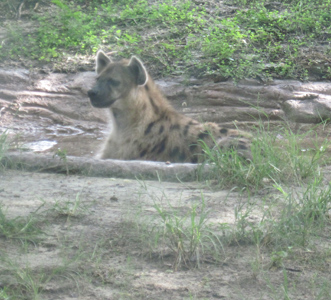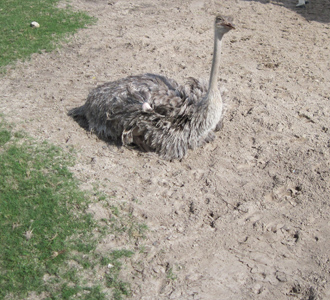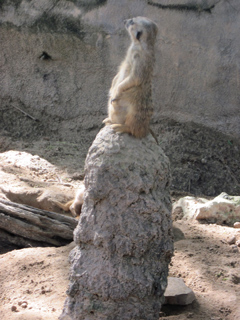LIFE
Snag That Dream Job: I wanna...be an animal doctor!


Nancy: By the time I was in high school I wanted to be veterinarian. I pretty much started volunteering at veterinary hospitals. I went to school at UC Davis, I did my undergrad there, then got into the vet school there. And then I went into a private practice for a couple of years and decided I wanted to become a pathologist. A lot of veterinarians specialize, and that was my chosen specialty. I had to get a Ph D., and I did my residency at University of Georgia. I practiced as a pathologist for a few years and then this job opened up.
GL: Why did you choose pathology?
Nancy: A lot of reasons. Well first of all, private practice is a lot of long hours, and I had a couple young kids. So I wanted to specialize in something where the hours were a little more regular, and pathology is a great field to do that. You can do quite well as a pathologist. It allows you to go out and work in any industry, so it’s very lucrative as well. Plus, it’s sort of like the final answer. I do a lot of biopsies on animals, look at a lot of specimens, so you know, I usually find out exactly what happened to that animal. Whereas being a practicing veterinarian, you run a lot of tests, you can take a lot of x-rays and sometimes you never know, it’s very hard. Sometimes you don’t know what’s really wrong.
But I basically have the animals right in front of me. I can usually get to the bottom line, and it’s good, I can relay that information back to the veterinarians and it makes it all better in the long run.
Nancy: I’ve been here since August. I’m filling a new position, they didn’t have a pathologist on site before. So it’s a brand new position and I was very lucky that I got it.
GL: Can you walk us through your typical day?
Nancy: I usually start at 8 o’clock in the morning with rounds. I do rounds in this hospital with the veterinarians, the clinical veterinarians, and we discuss all the cases. They give me an update on necropsy findings, or diagnoses, or any animals that have died. And after that if there are animals that have died, and need to be necropsied, I’ll go right in to the necropsy and do those animals.
And the rest of the day I usually spend reading glass slides. And those can be slides with tissue sections for animals that have been necropsied, or they can be slides with biopsy specimens from animals that are still alive. They can be what we call psychologies, which is fluids, any cells that we aspirated from a live animal, so just trying to help, help the veterinarians get a diagnosis. So it is a lot of sitting down and looking at microscope, or looking through a microscope.

Nancy: Probably the funnest job is when the veterinarians ask me to go out and actually look at a live animal. They say, they try to get me involved, and if something isn’t doing well, they try to get me involved before it dies. By the time, well hopefully it won’t die, but if it does, or if they are going to take a biopsy from an animal, I’m very familiar with the case, so by the time we get that biopsy or do that necropsy. That’s the best part, is by far, going out and working with the live animals.
GL: What's the most challenging thing you do?
Nancy: The biggest challenge about this whole job, is the numerous species. At a veterinary school, they teach us dog, cat, horse, pig, sheep, you know maybe some bird, usually chicken. We get here, and you have everything from fish to elephants, and everything in between and you know, even the anatomy will be different, even across birds, birds are very diverse, the anatomy is totally different from one to another. You have to be aware of all the very little specific features about that animal. The diseases that you get to see are very, very different. It's just a lot to know.
GL: Even though you've only been here for a little while, do you feel like you've learned a lot already?
Nancy: Well you know I think a lot of girls start off like I did, wanting to be veterinarian. So my advice would be to go work in a veterinary hospital. I started working in a hospital when I was in high school, and [girls should] just see what it’s like. A lot of people, not just girls, think "oh I love animals, maybe I should become a veterinarian," but you really need to go work in a hospital and see what it’s all about. Because it’s not just about "oh I love animals," you have to know how to work well with the owners of those animals, you have to be good at relating to people, showing a lot of compassion for both the owners and the animals, and you know, you see a lot of sad things, you see dogs that have been hit by cars. Just get in a hospital and try it, and see what it’s like and see if that’s really what you want to do.
Wanna see what kinds of animals Nancy gets to work with? Head to Busch Gardens Tampa to find out more!
POSTED IN How to get a job

 become a contributor
become a contributor


















